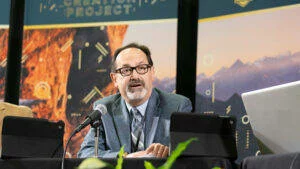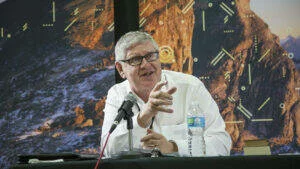 What Did I Mean?
What Did I Mean?
The word “creationism” means different things to different people, so it is necessary to define it right off the bat in discussions like these, so as not to result in more confusion than progress. In my essay I wrote that I understood “creationism” as: “the idea that some parts of nature were brought into existence by God ex nihilo separately—after the bulk of nature—whether long ago or comparatively recently.” Yet Hans thought that was unclear, sounding simply like “progressive creationism.”
I should have emphasized more in my original writing that sometimes I was addressing the views of others, not necessarily always writing of my own views. My definition of “creationism” was simply to clarify that term, not to describe my own position. Now, all Christians believe in creation, that God brought the world into existence out of nothing and continuously sustains it. Without God’s continuous action of sustaining the universe, it would disappear like a candle in the wind. Christians, however, can disagree on how God brought the universe into being, whether in one act or in a succession of separate acts (at least “separate” from our finite, time-bound perspective). I label as “creationism” any view that holds God brought the world into being through a succession of separate acts. This, then, is a broad definition that would include young earth creationism, old earth creationism, progressive creationism, plus any view that upholds a separate creation of Adam and Eve. It would also include even a view that God “guided” evolution, if that “guidance” necessarily involved ex nihilo creation (even of quantum events) over time. All those views hold that God’s creative actions occurred at separate time points (again, viewed from our finite perspective). The only alternative to some version of “creationism” as I define it is a view that God made the universe in a single act at the beginning of time and sustained it in its unfolding through the laws he gave it. One very attractive feature of the idea of intelligent design from my perspective is that it is compatible with any and all of the previous views, whether creationism or not. The only argument that intelligent design (as I use the term) makes is that one can objectively determine from the empirical evidence that at least parts of nature were purposely designed.
What about Miracles?
A second point of my essay that Hans thought might require more elucidation is my claim that, without supernatural revelation, we cannot know that there has been direct ex nihilo creation. He wondered whether that would rule out the occurrence of miracles after the close of biblical revelation.
No, nothing so extreme. I should explain that I was writing about determining that “supernatural creation” (or at least “supernatural activity”) occurred not from a common-sense perspective, but more from an academic, epistemological, David-Hume-looking-over-my-shoulder perspective. If I myself saw a large crowd fed by a few loaves and fishes, I would certainly think it probable that something beyond nature was going on, and if a friend of mine was healed of cancer after members of his church prayed over him, I would thank God for His mercy.There is a lot of background knowledge involved in reaching a conclusion of supernatural activity. However, if my nonreligious colleague in the Philosophy Department asked me if I could completely rule out fraud in the first instance or spontaneous remission in the second, I probably couldn’t do so to his satisfaction. To give a semi-rigorous answer, I would likely have to go back and tell my colleague the reasons I believe in God and Christ in the first place. There is a lot of background knowledge involved in reaching a conclusion of supernatural activity.
In any event, my primary reason in writing about the difficulty of rigorously arguing that some event was supernaturally caused was to contrast it with the facility of concluding something was purposely designed. In the latter case, as I argued, all we have to do is examine the object or event itself and see that there was a strong purposive arrangement of parts. If we see that, I argue, we are rigorously justified in concluding that a mind was behind it. If, while crossing a heath, we stumbled upon a watch, we could easily conclude it was necessarily designed, but not that it was necessarily created ex nihilo.
Hans also thought it would be helpful for me to give specific examples from biology or chemistry to illustrate what I consider to be a “purposeful arrangement of parts” in nature.
Of course, as I have argued in Darwin’s Black Box and elsewhere, I think irreducibly complex biochemical and cellular systems such as the bacterial flagellum, eukaryotic cilium, immune system, blood-clotting cascade, intracellular transport system, and much more are examples of biological systems that show the purposeful arrangement of their parts with stunning clarity. They are conspicuous examples of systems that required purposeful planning and design. However, they aren’t the only ones. My argument in Darwin’s Black Box was aimed not only at illustrating purpose and design, but also at stymying Darwinian counterarguments, which breezily claim to be able to account for even the most stunning structures. So I stuck to systems that not only exhibited design, but were also the most resistant to Darwinian Just-So stories. For example, I did not even argue then that the eye itself—that paradigm of biological elegance—was designed. I restricted my argument to the molecular level of life.
In my new book, however, I argue that design extends very deeply into life, and that it likely extends to the family level of biological classification. So, not only would I claim that, for example, whales and giraffes required explicit design. I would argue the same for cats and dogs. Darwin’s theory greatly undercut our ability to recognize design and purpose in nature. Modern science is restoring it.
Unintended Consequences
A final important question raised by Hans has also been raised frequently by critics of intelligent design: if we identify purposeful arrangements in nature, does that necessarily imply that other arrangements in nature are not purposeful?As a Christian, I think that everything is in God’s hands. But we still confront deep epistemological questions. Or is it only meant that the only scientific way we can infer the presence of mind is by way of a purposeful arrangement?
The latter view is what intelligent design proponents mean. As a Christian, I think that everything is in God’s hands. But we still confront deep epistemological questions. One is whether or not there is true randomness in the world (that is, the physical universe). If God intended some event or situation to occur, and arranged (in ways we cannot comprehend) for it to in fact occur, then I count that as a designed event, even if we finite beings cannot detect it. On the other hand, I think it is possible that God created all, sustains all, and knows all that will occur, but did not necessarily explicitly intend that all events/relationships should occur for their own sakes. Some things may be unintended consequences of other intended events—unintended even by God. For example, when the leaves begin to fall and accumulate on my lawn in October, their exact relationships—distance from each other, color pattern, whatever—may not have been intended. If so, then there are truly serendipitous, non-planned aspects of the world.
If such randomness does exist in the world (which, I hasten to say, was/is created/sustained by God), then it is a reasonable question to ask if there is a way to discern what was indeed intended by God for its own sake. One pretty safe way to do so as a scientist—that is, to err on the side of non-design—is to look at the physical structures, or timing, or other observable aspects of parts of nature. If they exhibit purposeful arrangements of parts then, as I have argued in my books, one can know that they were intended. With other parts of nature (such as the leaves on my lawn) one cannot decide. They may have been, but there is no empirical evidence to say so.







Comments
Be the first one to make a comment!